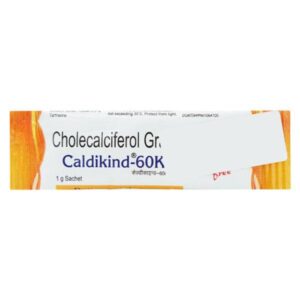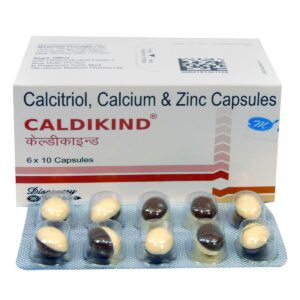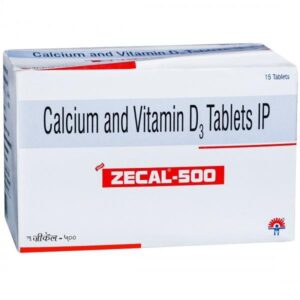CALCIUM + VIT D3
Calcium: Calcium is a mineral that is essential for the normal functioning of the body. It is primarily used as a dietary supplement for the prevention and treatment of calcium deficiency.
The mechanism of action of calcium involves its role in various physiological processes such as nerve transmission, muscle contraction, blood clotting, and the maintenance of strong bones and teeth. It is also involved in enzyme activity, hormone secretion, and cell signaling.
The recommended dose of calcium varies depending on age, sex, and specific health conditions. For adults, the recommended daily intake ranges from 1000 to 1300 mg, which can be obtained from dietary sources or through supplements. It is important to note that calcium should be consumed in conjunction with vitamin D for optimal absorption.
While calcium is generally safe, excessive intake can lead to adverse effects. Some common side effects of high calcium supplementation include constipation, bloating, gas, and an increased risk of kidney stones. Additionally, calcium supplements may interact with certain medications, impairing their absorption or efficacy.
It is worth mentioning that calcium should be obtained primarily from dietary sources, such as dairy products, leafy greens, and fortified foods. Supplements should only be used when dietary intake is insufficient or when prescribed by a healthcare professional.
Please note that this response is for informational purposes only and should not be taken as medical advice. It is advised to consult with a healthcare professional before starting any new medication or supplement regimen.
Vit D3: Vitamin D3, also known as cholecalciferol, is a micronutrient that plays a crucial role in maintaining overall health, particularly bone health. It is the form of vitamin D that is naturally synthesized in the skin upon exposure to sunlight. Vitamin D3 is also available as a dietary supplement.
Use:
Vitamin D3 is primarily used to prevent or treat vitamin D deficiency. It is prescribed for individuals who have limited sun exposure, have darker skin, or cannot adequately absorb vitamin D from their diet. Vitamin D deficiency can lead to conditions like rickets in children and osteomalacia in adults.
Mechanism of Action:
When vitamin D3 is synthesized via sunlight exposure or ingested, it undergoes conversion in the liver to form calcidiol (25-hydroxyvitamin D). Calcidiol is then further activated in the kidneys to form calcitriol (1,25-dihydroxyvitamin D). Calcitriol binds to vitamin D receptors (VDR) in various target tissues, including bones and intestinal epithelial cells. This binding promotes calcium and phosphate absorption in the intestines and regulates calcium homeostasis in the bones, ultimately supporting bone formation and mineralization.
Dose:
The recommended dosage of vitamin D3 varies depending on age, underlying health conditions, and the severity of vitamin D deficiency. However, a typical daily dose for adults ranges from 1000 to 2000 international units (IU). Higher doses may be prescribed for individuals with severe deficiencies and under medical supervision.
Side Effects:
In general, vitamin D3 is considered safe when taken within the recommended dosage. However, excessive intake of vitamin D can lead to hypercalcemia (elevated calcium levels in the blood) and related symptoms such as nausea, vomiting, weakness, and increased thirst. Long-term overconsumption of vitamin D3 can potentially lead to renal damage and kidney stones. Allergic reactions to vitamin D3 supplements are rare but can occur.
It’s important to consult a healthcare professional before starting vitamin D3 supplementation, especially if you have underlying health conditions or are taking other medications, as they can interact with the drug.




